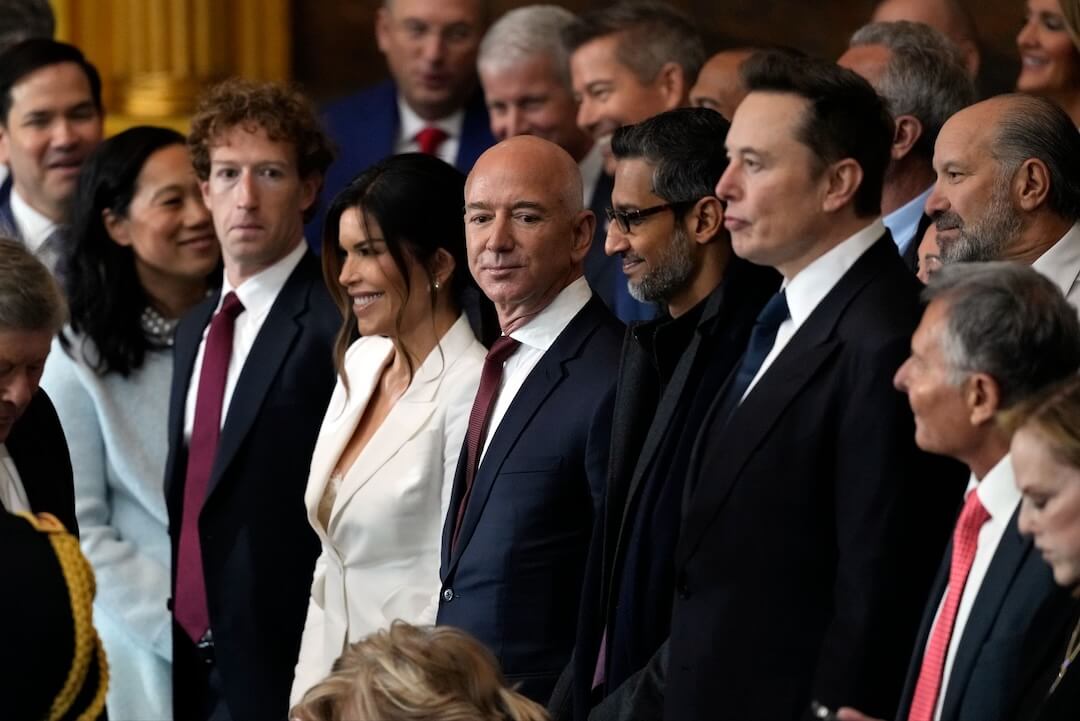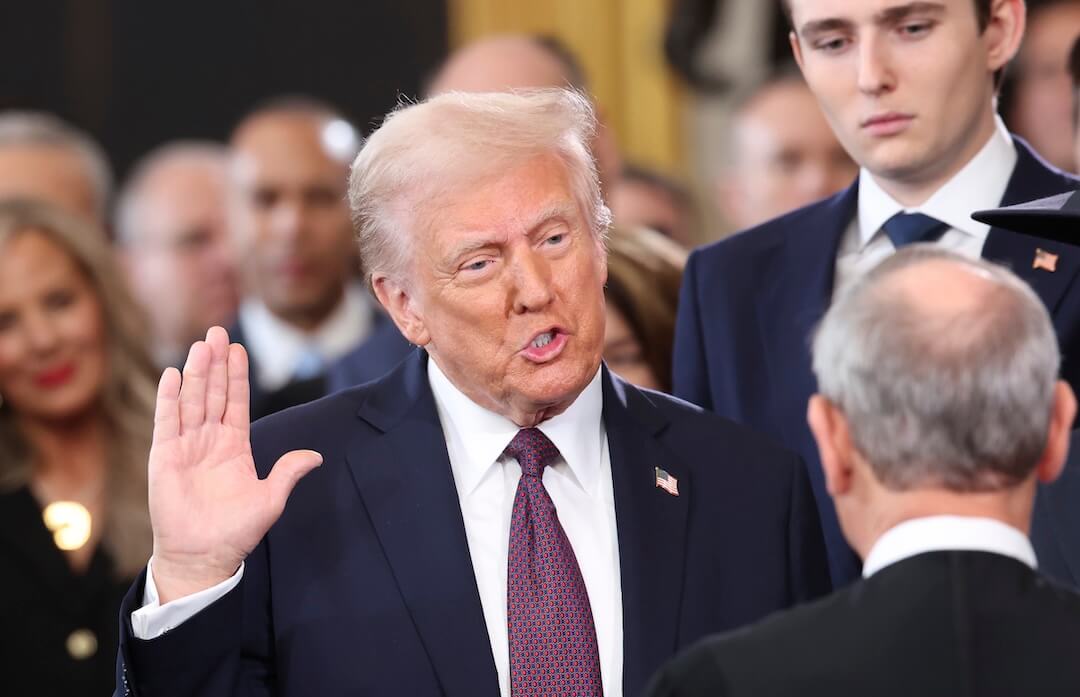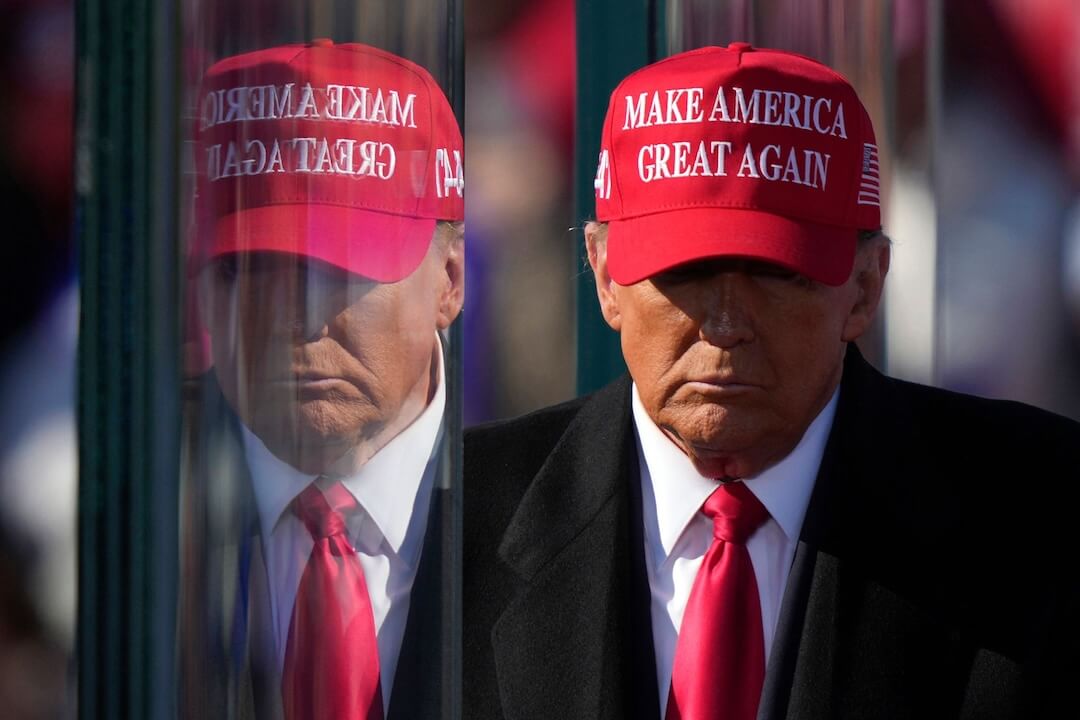Cristina Tardáguila couldn’t wait for Friday.
She’d spent the past year working around the clock to cover the Brazilian election. Her team at Agência Lupa fact-checked more than 1,300 claims during the campaign. And now she was headed to the mountains, where she’d have no Wi-Fi for a few days.
That was more than two weeks ago. Since then, in the aftermath of one of the most contentious presidential elections in Brazil’s history, fact-checkers like Tardáguila are rethinking how to do their jobs under Jair Bolsonaro — who has already attacked the press repeatedly.
“We could’ve done a lot more. This is the bottom line of the election,” Tardáguila said. “When I say we, I mean Brazilians, platforms, power institutions and also the fact-checkers.”
It was a difficult election cycle for fact-checking projects like Agência Lupa and Aos Fatos. A deeply polarized society created the perfect storm for conspiracies to go viral on Facebook and its sister platform WhatsApp. The latter in particular played a central role in this campaign.
“For the first time ever, at least in Brazil, there was this new condition: what you receive on your phone. That was never a factor in voting before,” Tardáguila said.
Fact-checkers themselves were attacked for working with technology companies to cut down on the misinformation, and the platforms didn’t offer much in the way of assistance. Bolsonaro himself used an aggressive social media campaign to circumvent the media and appeal to large swaths of the electorate.
RELATED ARTICLE: These were some of the top hoaxes on WhatsApp before the Brazilian election
“Journalists clearly underestimated the hard right congressman’s capacity to go around them by aggressively using social media to tap into Brazilians deep anger and frustration with widespread political corruption and crime — a sentiment that was aggravated by the lingering effects of the country’s longest and deepest recession,” said Paulo Sotero, director of the Wilson Center’s Brazil Institute, in an email to Poynter. “All (press outlets) are vulnerable to attacks and acts of intimidation via social media and other means.”
And since the election, the situation hasn’t really improved, fact-checkers told Poynter.
In his first televised interview with the press, Bolsonaro, a member of the right-wing Social Liberal Party, attacked the daily newspaper Folha de São Paulo over its investigation into illicit WhatsApp campaign tactics, saying “this newspaper is done.” Tai Nalon, director of Aos Fatos, said it really set the tone for his new presidency.
“I was like, ‘OK, it’s not different from what we’ve been through this year,’” she said. “We have had our share of attacks and harassment, so we are kind of used to it.”
***
After joining Facebook’s fact-checking partnership in the spring, Lupa and Aos Fatos were viciously attacked online.
For months, they threatened, trolled and doxxed online by members of the Brazilian far right for working with the tech company. The program lets independent fact-checking outlets rate links, photos and videos as false on Facebook, decreasing their future reach on the platform. Nalon said the fallout from that was the most challenging part of the campaign for her. (Disclosure: Being a signatory of the International Fact-Checking Network’s code of principles is a necessary condition for joining the project.)
“That was an ugly moment of our lives, I think,” Tardáguila said.
Then came the legal threats.
After contributing fact checks to Facebook’s anti-misinformation program for a few months, Lupa received a letter from a website they had previously debunked. The site threatened legal action if the fact-checkers didn’t stop debunking their stories, thereby decreasing their reach on Facebook.
“That was kind of scary because fact-checkers should be free to fact-check whatever,” Tardáguila said. “We answered it that we are still going to fact-check, and it seems like this story has stopped. We haven’t received anything else.”

Despite the attacks — as well as fact-checkers’ disappointment with the way Facebook handled them — Tardáguila said the partnership largely worked during the campaign.
“We saw false news being reported as false on the platform, our reporters worked based on what was being reported as false and we actually posted our corrections, flagged as false bad information in Facebook,” she said. “So it worked. We saw results.”
Both Lupa and Aos Fatos also committed resources to debunking claims on WhatsApp, whose encryption makes it nearly impossible to track what content is being shared. By the end of the election, Nalon said that Aos Fatos had 6,000 subscribers to its WhatsApp channel and had received about 700 tips through the platform.
But as a company, Facebook could have done more, Tardáguila said.
The company didn’t offer any data on how Lupa’s fact checks were decreasing the spread of misinformation. And WhatsApp, which served as the vehicle for numerous far-reaching hoaxes in Brazil, only had six employees working explicitly on misinformation. By comparison, Lupa had 15.
“It feels like we all could have done more,” Tardáguila said. “I could have hire more people also, worked during the night. We could have debunked a lot more.”
Would it have made a difference? That’s the question Tardáguila keeps asking herself.
“What I see is that, when you decide your vote, you take into account what your family says, what your friends say, what you read, your education, what you have read in your life, what your teachers have told you,” she said. “But we cannot measure how big these factors were in the decision-making process. If we had fact-checked more, would that have changed something? That is also impossible to measure.”
***
Now, nearly a month after the election, it seems like the real threat to Brazilian fact-checkers could soon come from the president-elect and his supporters.
In his attack against Folha, Bolsonaro included a veiled threat to remove government advertising in the newspaper. He’s started calling Folha “fake news” — just like Donald Trump does with CNN in the United States — and hired a foreign minister who believes globalism is an anti-Christian ideology.
“We we think it’s a way of talking that could turn to fact-checkers as soon as we start fact-checking him,” Tardáguila said. “We have a huge challenge ahead.”
In addition to semantics, fact-checkers are concerned about the integrity of government statistical bodies. A decade ago in Argentina, the government fudged inflation rates for political gain, leaving fact-checking outlets without reliable data. Since Bolsonaro’s administration plans to shrink the number of ministries, Tardáguila said she’s anxious to see how they will continue to publish public data.
At the same time, Nalon said that since much of the misinformation that was spread online during the election came from the right, it’s been hard for Aos Fatos to maintain a semblance of balance in its reporting.
RELATED ARTICLE: Fact-checking under President Trump
“One side was obviously using more fake news than the other side. So it was a challenge to try to have some kind of not looking like we’re biased,” she said. “We have already faced this challenge and we will be facing it again and again.”
Readers have already started calling Aos Fatos out for heavily fact-checking Bolsonaro, even though he’s dominated news coverage over the past few weeks, Nalon said. That problem echoes what American fact-checkers had to deal with in the aftermath of the 2016 U.S. election, during which time The Washington Post Fact Checker reported that Trump has made more than 6,000 false claims.
Over the past year, a united Republican government led by President Trump has made it harder for fact-checking outlets to be maintain an appearance of balance in their selection of claims to fact-check — despite their nonpartisan methodologies. Glenn Kessler, editor of The Fact Checker, told Poynter in the spring that it was a problem that had confounded him for months.
“What you do is you generally fact-check the people who are making the news and the people who have the megaphone,” he said. “In the current era, where you have one party controlling both the Senate and the House and the White House, it has just become more difficult. I’ve certainly not been happy about it.”
And that problem presents a big challenge for Brazilian fact-checkers going forward.
“We have to find some way to portray reality in a way that we don’t generate false equivalencies. We can’t be equal with the unequal. You can’t treat them with the same approach, because one side uses lies as a means of communication,” Nalon said. “How can we figure out how to keep on fact-checking in a way that people see that our work is not activism — it’s journalism?”







